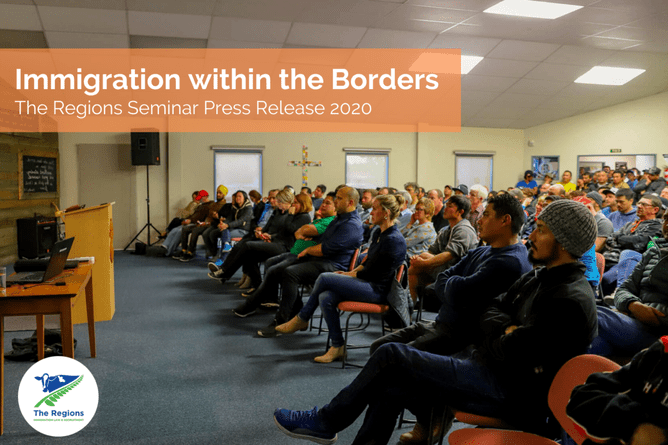Immigration expert to discuss the impact of immigration policy on New Zealand’s agricultural labour force.
- Displaced work visa holders being offered a lifeline by agriculture sector
- Long-term effect of closed borders on New Zealand’s rural communities needs to be discussed says immigration expert, Ben De’Ath
- Nationwide seminar series to look at impact of immigration policy change on New Zealand’s rural communities and skilled work visa holders
The long-term effect of closed borders on New Zealand’s rural communities and what post-COVID-19 looks like for skilled migrant work visa holders are among the topics of discussion in a series of nationwide seminars being launched later this month.
The Regions Immigration Law and Recruitment, the specialists behind changes to New Zealand’s temporary work visas which saw a petition of 8,000 signatures presented to Parliament in December 2018, will be discussing the future impact of immigration policy on New Zealand’s agriculture sector.
The first of the 20 seminars held nationwide throughout September and October will take place in Whangarei on Monday 21 September.
Ben De’Ath, immigration advisor and managing director of The Regions, says many work visa holders are displaced here in New Zealand and the agriculture sector is crying out for skilled labour. “One of the significant impacts of the COVID-19 pandemic and the closure of New Zealand’s borders, is the growing number of work visa holders being made redundant, yet not being able to return home. Meanwhile, our agriculture sector relies heavily on skilled migrant work visa holders who are unable to enter New Zealand.”
De’Ath says skilled visa attainment and work to residence are key issues that need to be addressed by Immigration New Zealand to ensure all work visa holders in New Zealand can continue to make a valuable contribution in an industry that is crying out for labour.
“We took a stand against the stand down and petitioned strongly for changes to work visa holders, knowing the impact such a policy would have on New Zealand’s rural communities. While we couldn’t have predicted the COVID-19 pandemic back then, we now need to ensure those policy changes aren’t lost and that they’re used for the betterment of New Zealand’s dairy farming sector in these uncertain times.”
An immigration lawyer, De’Ath says many work visa holders and farmers are asking what the future looks like, given the reliance the agriculture industry has on the migrant worker population. “Like many other sectors, agriculture needs to review how it’s going to provide on-shore solutions and ensure sustainability of a skilled workforce long-term.”
De’Ath will be the keynote speaker at The Regions nationwide series of seminars, discussing the impact of immigration policy on New Zealand’s agriculture industry in a post-COVID world. The series, titled ‘Years in the Making’, will commence in Whangarei on Monday 21 September and conclude in Gore on Thursday 15 October.
“COVID-19 has brought about significant challenges to New Zealand’s primary industries. We need to ensure the dairy sector isn’t left in limbo,” De’Ath says.
